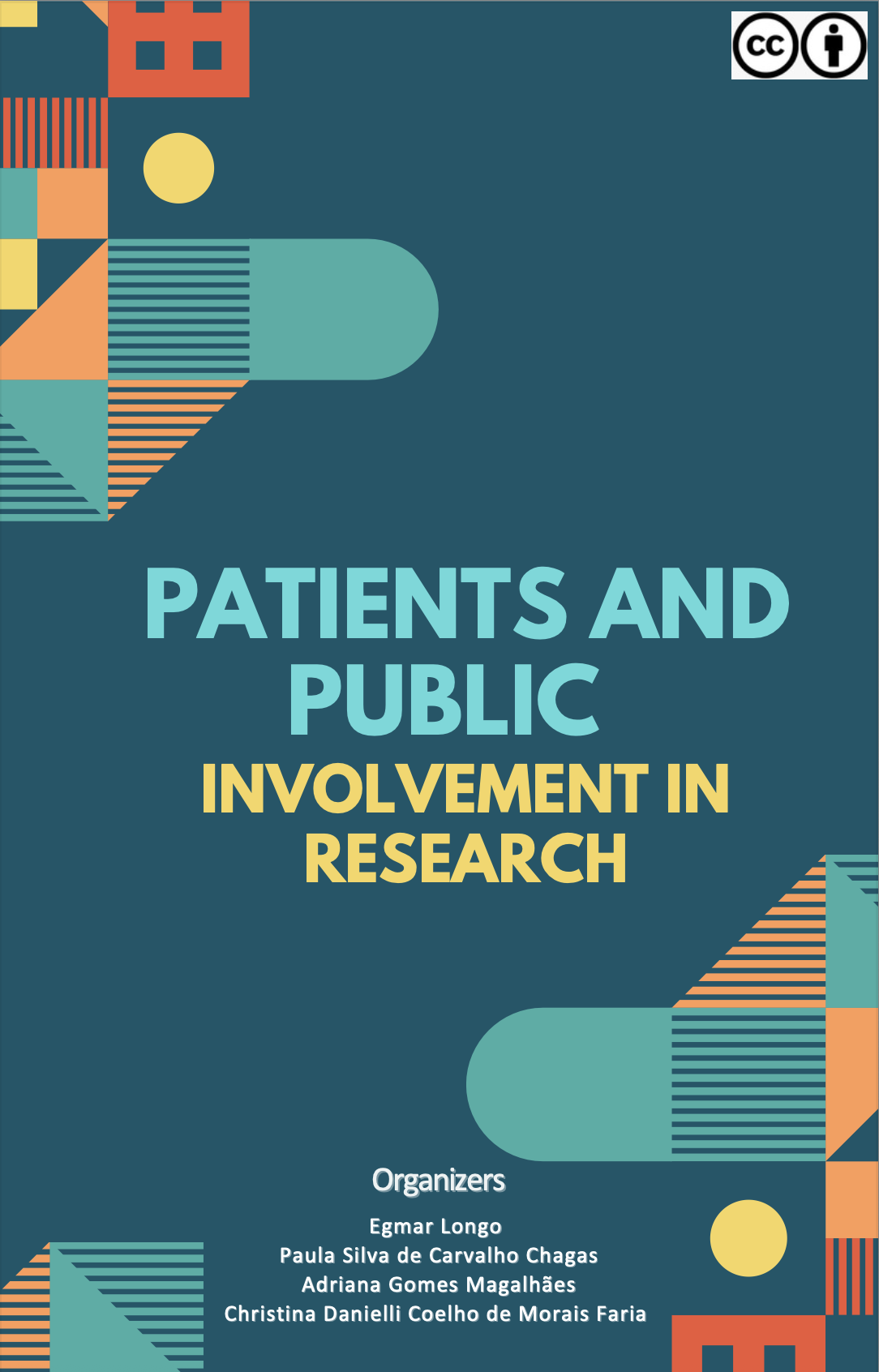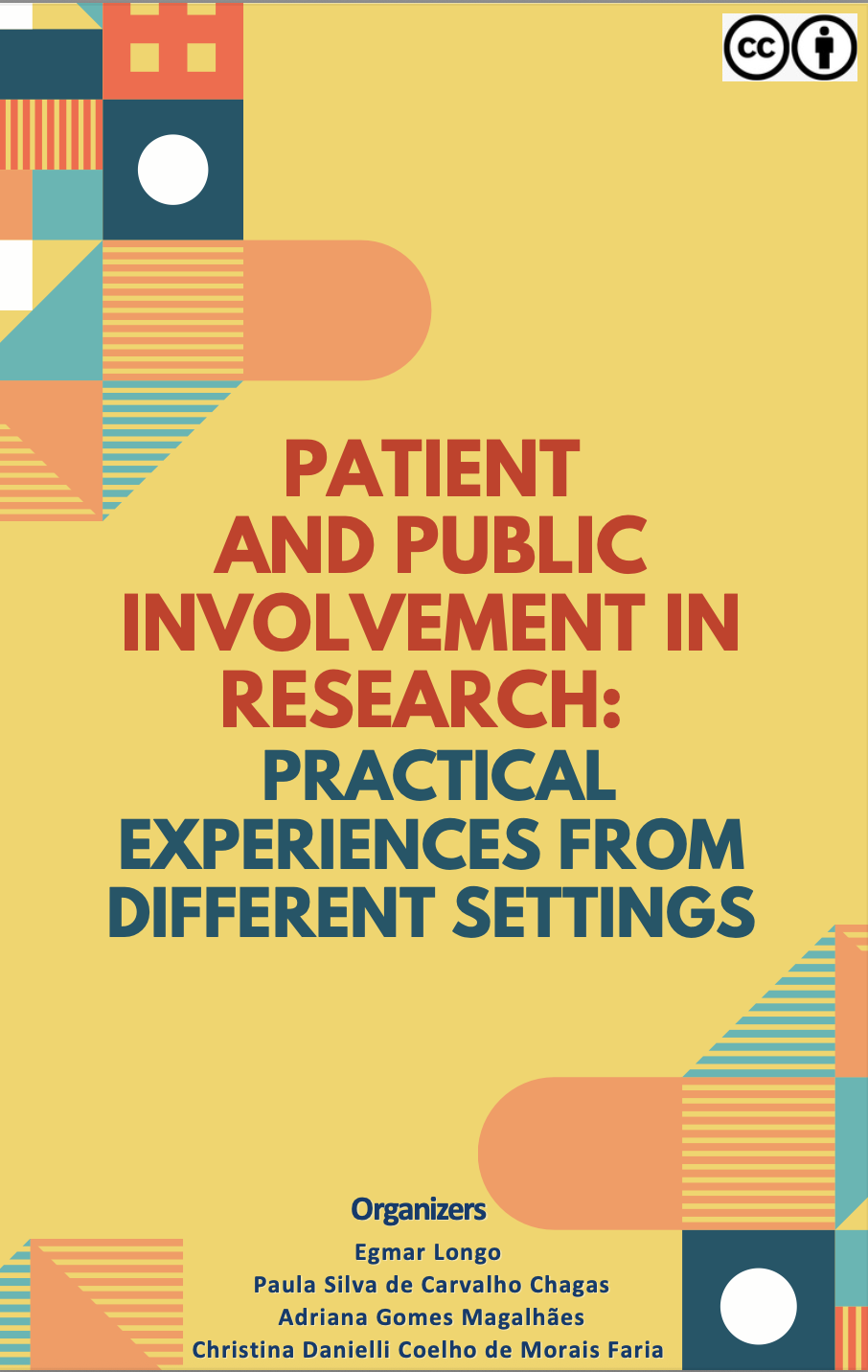This collection of resources on Patient and Public Involvement with Research was authored and compilerd by Brazilian researchers and practitioners, with contributions from PPI practitioners around the world.
Patient and Public Involvement in Research (Handbook with insights into practice)
This e-book is the outcome of a collaboration among
physiotherapists, professors, and researchers from Brazilian
public universities. It was produced with the aim of fostering
advancements in health research in Brazil by engaging patients
and the public. The primary goal is to offer insights on patient and public involvement
(PPI) in research, including methods for their engagement at
various research phases, practical considerations, PPI training,
assessment of PPI approaches, challenges, opportunities, and
ethical aspects.
The content will aid in the education of existing
researchers and a new cohort of Brazilian researchers,
dedicated to integrating the viewpoint of patients and the
public throughout various research phases, spanning from
formulating research inquiries to sharing findings, facilitating the creation of significant insights that influence their well-being.

Portugueses download
Spanish download
Patient and Public Involvement in Research: Practical Experiences from different settings
This e-book was strategically designed and organized to address the
educational needs of Patient and Public Involvement (PPI) in
Research, particularly for researchers in countries like Brazil, where
PPI still needs to be widely incorporated into research projects and
activities.
It builds upon the first e-book, Patient and Public Involvement in
Research, which introduced the foundational concepts of involving
patients and the public in research. In this new e-book,
practical and successful experiences of "how to do PPI" are presented, contributed
by collaborators from various parts of the world.
You will find examples of patient involvement across different health
conditions and public engagement from various age groups in
research led by countries such as England, Canada, Ireland, and the
Netherlands. Additionally, initiatives from low- and middle-income
countries, including Brazil, Chile, Uganda, and Indonesia, are shared.

Portugueses download
Spanish download
